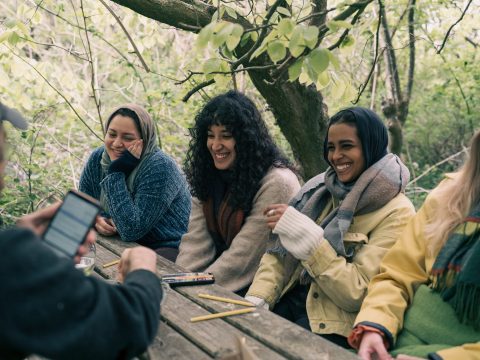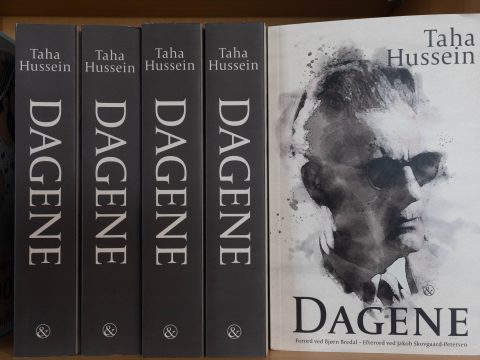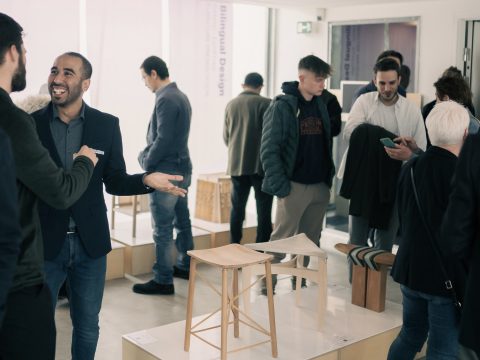
Projecting experiences
July 8, 2021
Furniture design winners
November 2, 2021Copenhagen International Documentary Festival: Chances to watch the latest movies and joint cooperation.
By Mohamed Tarek
Mahmoud Ramadan, one of the students in Jesuits Documentary Film School in Upper Egypt, attended the Copenhagen Documentary Festival. It was a new experience for him on many levels, since he was only used to attend Egyptian festivals in Cairo, Luxor, and Aswan.
Ramadan says, “It was an enriching opportunity to connect with other cultures, and to hold discussions with filmmakers and critics from different continents whether in the workshop or in the interactive events that accompany the festival. The festival was specialized in non-fiction films, which is my school major genre. There were great variety in the form, ideas, and ways of executing the participating movies that have been available for us to watch. This increased our understanding and our chances to make non-fiction movies.”
CPH: DOX 2021 ran virtually from 21st of April to 12th of May 2021. It is one of the most important film festivals specialized in non-fiction movies, which was held in Copenhagen, Denmark. Tarek attended the festival among a nominated Egyptian delegation by DEDI, including moviemaking and festival experts and several Egyptian filmmaking students. The delegation participated in the festival this year whether by talking about cinema situations and joint cooperation opportunities or by learning in the festival academy’s workshops.
The Copenhagen festival focuses on program diversity, which present suitable movies for each one of the audiences. If you want to make use of watching documentaries to be aware of the course of the world, this festival will be useful and available. If you are looking for art and experience apart from indicative films, then your request is also available here.
In addition to the diverse screenings, the festival plays a great role through its market and academy. It creates through them productive cooperation between documentary moviemakers throughout the world.
Northern Prospects
“The opportunities of co-production between Egypt and Europe are always available yet limited to Germany and France. The cooperation with Copenhagen festival market is a new one for joint production with Scandinavian markets,” says Marouan Omara, the Egyptian director and the Managing Director of the Regional Conference for Arab Independent Cinema, and one of the Egyptian delegation members presented and supported by DEDI to attend the festival. He added, “This cooperation gives new funding opportunities to projects as well as more diverse artistic visions, which is very healthy to produce more fresh and free films.”
The Egyptian delegation, sponsored by DEDI, consisted of 4 filmmakers most of them has a great experience in the field of documentary movies. In addition to Omara, the invitation included Amir Ramses, the Artistic Director of El Gouna Film Festival, Nadine El Derini, Co-founder and Director at MasrdotBokra Film Festival and finally Nada Riyadh the Egyptian Director and Co-founder of the Cairo production company Felucca Films.
“One of the great advantages of the festival is its dedication to non-fiction films. This gives more opportunities to the films’ makers to know the latest techniques and to find a space for their voices. The festival helps in creating professional moviemakers. With DEDI’s support, more different voices are reaching and participating in the festival market.”
The festival was founded in 2003 and has developed over the years to be one of the largest stations of joint cooperation and essential destination for all non-fiction filmmakers of all types. In 2019, the latest year the festival was held in Copenhagen before conducting it virtually due to covid-19 pandemic, the festival has sold around 115,000 tickets, which proves the popularity of the festival dedicated in film genres that are not usually popular.
“The rapid changes that happen in the non-fiction filmmaking market, especially with the confusion caused by the covid-19 pandemic conditions and its effect on the process of film distribution, enhance the role of industry platforms such as Copenhagen festival platform, the largest in the Scandinavian region,” commented the Egyptian director Nada Riyadh on the importance of enhancing the mutual cooperation. She added, “Through the festival, filmmakers were able to connect with the most prominent international people in the fields of production, funding and cinema distribution. My Participation has helped me to gain deeper understanding of the market current situation. This would help me to produce documentary projects. Having Egyptian delegation has also contributed in asking questions about fair co-production protocols.”
Various Competitions
There are 7 competitions in Copenhagen festival divided between the international competition, “FACT” competition for gray area between filmmaking and investigative journalism, and other competitions for experimental or northern films (comes from Scandinavian countries). In addition, there are uncompetitive sections for movie themes and styles, but they do not get any prizes.
The Copenhagen Documentary Festival is distinguished with many competitions and sub-sections. Instead of being dedicated only to artistic films, the festival gives space for different voices such as journalists, emerging youth or modern artists whose art is related to the realm of cinema. Each movie was listed under program or section that conforms to the displayed movies. Meanwhile, the sub-sections were titled with names such as “justice” or “science”. They provide access to more inclusive audience, with the possibility of discussing themes and recent events.
The Egyptian Director Nada Riyadh said in the same context related to supporting youth talents, “Arab filmmakers need to share their experience with new generations of documentary filmmakers, develop Arab networks that enhance their presence in the international industry platforms and support the infrastructure of Arab Cinema industry. This facilitates the industry and distribution of Arab documentaries and provides opportunities for cinema students to participate in the festival, which is an effective step in creating this kind of networks through the festival academy.”
The Academy
The Festival Academy has provided the opportunity for cinema students throughout the world to participate in specialized workshops and discuss the recent phenomena in the world of non-fiction films. With DEDI’s sponsorship, several Egyptian students could participate in the academy program this year.
Egyptian students were able to watch the festival films until 1st of June 2021. This gives them opportunity to watch as many films as possible. In addition, the academy program included discussions about cinema and criticism with its various forms, as well as interactive dialogues with some of filmmakers, programmers and analyzers participating in the festival.
Hadeer El-Fayez, a student of Jesuits school, said, “The most distinguished feature in the festival was the great number of themes and discussions about movies. In addition, there was a window that allows you to communicate with all the festival participants through sending messages, but the hardest part for me was the huge amount of details that make you get lost in the momentum of films and discussions.”
Though the festival was held virtually, which is an obstacle to any cinema festival, it paved the way for larger number of participants who would have been prevented to attend the festival because of the high accommodation and travel expenses. This virtual way gave greater chances to increase the festival audience and fans throughout the world. Furthermore, the huge diversity of the themes, films, and even levels of filmmaking participants indicate that the festival takes more inclusive steps to support more voices.
Mohamed Tarek is an Egyptian film critic and member of Egyptian Film Critics Association. He writes for many websites and newspapers such as Eda’aat, Daily News Egypt, and Film Magazine. He also works as a movie programmer at El Gouna Film Festival and a director of the cinema project at El Nahda Association for Scientific and Cultural Renaissance (Jesuit Cairo).
Read more from DEDI:




